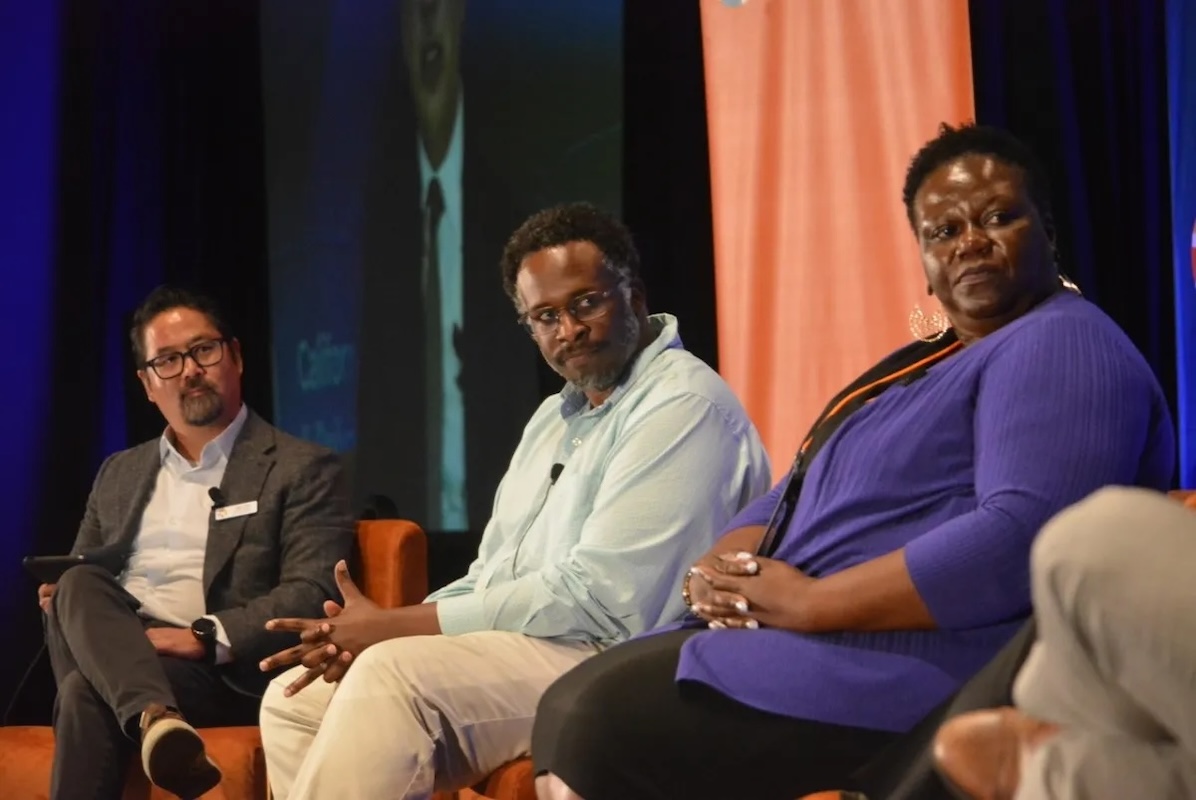By Antonio Ray Harvey | California Black Media
Although California will have to make significant budget cuts to balance its budget as required by state law, Assemblymember and California Legislative Black Caucus (CLBC) member Isaac Bryan (D-Ladera Heights) said there are still ways to achieve reparations for Black Californians.
Currently, the budget deficit for the 2024-25 fiscal year has been projected to be as high as $73 billion.
Bryan said it will be “absolutely difficult,” but the state is still investing in other priority programs, various essential industries, oil companies, and prisons. The 32-year-old lawmaker made these observations at the California Budget and Policy Center (Budget Center) annual Policy Insights conference held April 16 at the SAFE Credit Union Convention Center in Sacramento.
“(California) has the 4th or 5th largest economy in the world. There will be $300 billion coming out of California State government,” Bryan said. “So, you can’t tell me that we don’t have the resources to foundationally begin reparations conversations or to start to make amends to start to do the repair work when we can invest in these institutions.”
The Budget Center is a nonpartisan, research and analysis nonprofit dedicated to advancing meaningful public policies that enhance the lives of Californians. It is also committed to exposing inequities in the state, budget priorities, and public policies that affect low and middle-income households, women, immigrants, American Indians, Asians, Black, Latinx, and Pacific Islander Californians.
The Budget Center’s Policy Insights 2024 conference brought together diverse stakeholders, including community advocates, government officials, nonprofits, and members of the media. The conference featured 11 workshops and plenary sessions covering topics in tax and budget policy, poverty, racial equity, housing and homelessness, child development, and more.
During the conference’s luncheon plenary session, titled “Policy Pathways to Reparations,” discussions were centered around the topic of reparations.
The session explored courses of action for securing reparations, guided by a 2023 task force report that examined the damages endured by African Americans as a result of slavery, Jim Crow laws, and legal and illegal discriminatory practices that were a part of the country’s culture for centuries.
Bryan was joined by Felicia Jones, the Director of Programs and Operations for Social Good Solutions and The Black Equity Collective; James Woodson, from the California Black Power Network and African Americans and the Alliance for Reparations, Reconciliation, and Truth (ARRT); and Don Tamaki, a former member of the California Reparations Task Force and Senior Counsel, Minami Tamaki LLP. The moderator was John Kim, a member of the Budget Center Board of Directors and President and CEO of Catalyst California.
Woodson acknowledged that it would take more than members of the CLBC to pave the way toward reparations in the state. He said it would take a collective effort from people of all backgrounds to get the public and other lawmakers on board.
Both Woodson and Tamaki are members of AART. The organization’s mission is to raise public awareness about reparations and to build a base of multi-racial and multi-sector supporters in the state.
CLBC members Assemblymember Reggie Jones-Sawyer (D-Los Angeles) and Sen. Steven Bradford (D-Inglewood) are also associated with ARRT. Both lawmakers were members of the California Reparations Task Force.
“There are hearts and minds we’ve got to change outside the Legislature,” Woodson said. “From a moral standpoint but also a practical standpoint that it just can’t be about Black communities and Black people. We have to have other communities standing with us.”
Several reparation bills presented by the CLBC as a whole or by separate members are working their way through the State Legislature.
Assemblymember Lori D. Wilson (D-Suisun City), Chair of the CLBC, stated in January, “While many only associate direct cash payments with reparations, the true meaning of the word, to repair, involves much more.”
Before discussions about financial payouts can take place, considering budget concerns, Wilson said that “a comprehensive approach to dismantling the legacy of slavery and systemic racism” is necessary.
Gov. Gavin Newsom presented a $291 billion spending plan to the California Legislature on Jan. 10. None of CLBC’s package of bills is tied to direct cash payments but Bryan did ask supporters at the conference to keep the conversation going about reparations.
“Don’t let the legislature or the governor off the hook,” Bryan said.
Tamaki, who is Japanese American, was the only non-Black member of the nine-person reparations task force. He told the Policy Insights attendees that “moving the needle” in the direction of public opinion, raising awareness, and passing the CLBC bills are the next steps in the push for reparations.
“Out of 115 (reparations) proposals for repair, only a few of them deal with individual compensation. The rest have to do with policies,” said Tamaki. “For example, Black infant mortality over 10 years in San Francisco is literally five times the rate for White babies. So, these are the systematic outcomes we are familiar with that need to be addressed.”




